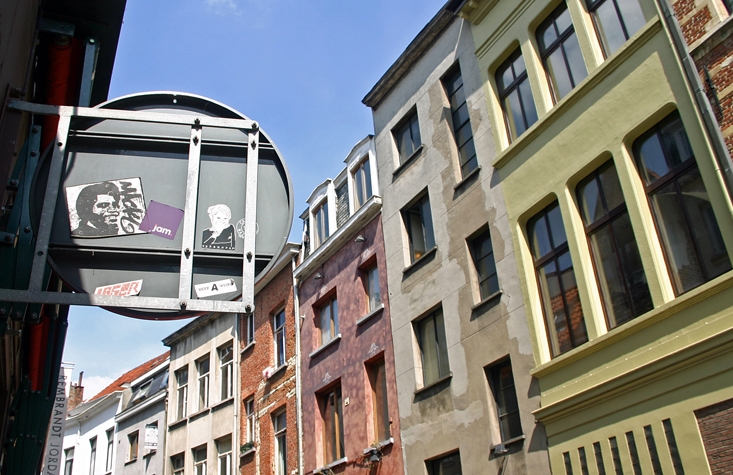
“A Catalogue of Birth” by Kirsty Logan
(an extract from Little Dead Boys)
St Roches was the kind of bar where no-one looked at each other. The lights from the fruit machine spasmed in the corner and the air smelled of over-vacuumed carpet and spilled pints. It was late afternoon but the bar’s occupants seemed to be there for the long haul, clustering tired-eyed around the bar, not even pretending to read newspapers or look out of the window. The only reason to be here was to drink, and so they drank.
Cass ordered her third double whisky and hunched over her glass. Out of the corners of her eyes she could see that everyone else here was in a similar posture. Her phone was on the bar next to her glass: she’d scrolled through to Gretchen’s number a dozen times, but couldn’t quite bring herself to press the green button, to listen to the endless burr of the unanswered ring. She drained her glass, shuddering as the heat burned down her throat.
It was true that Cass mostly saw her mother – maybe saw her – obviously didn’t see her – saw someone who might be her if the lighting were just so and Cass’s eyes were already blurred with the neon night and drinks from strangers and two hours’ sleep – in bars. But she saw the entire city in bars. If anyone was looking for anyone in the city, the best place to look was a bar.
She pushed her glass away and slid off her stool. No one looked, but she kept a hand on the sticky bar for a few moments so that when she started to walk she wouldn’t trip over her feet. The toilet door seemed a long way away – years, miles, lifetimes. She tiptoed, her breath too loud in her ears. The fruit machine juddered to life and she walked faster to get away from its bleeps and clatters.
A few months ago, Cass had been in a night out with Gretchen and Lana. She was still seeing Gretchen, but she suspected that Gretchen was seeing someone else too. She’d wanted to confess all, to drop the L-word, to say that she wanted it to be for real this time, just the two of them, but there was no point. Loving a girl like Gretchen could never lead to anything good.
Instead, Cass had excused herself for a cigarette and walked out of the bar and down the wrong back alley and into a damp cave of a bar where she was thirty years younger than everyone else and no-one looked up from their half-empty pints: beaten men with worlds resting on their eyelids, women wrinkled with the weight of cleaning the messes left by people they had never even met. The stereo was flickering and full of static, but the bottles lined up behind the bar gleamed brighter than any diamond. She could run all night, through the city with the headlights glinting on the whites of her eyes, on those jewels attached to the shining optics.
The bar had smelled of stale sweat and dirty boots, but it was still time for a drink, and there was nothing she could do about that. This was the only place in the world where she could be lost and found all at once.
Cass had kept her eyes down on her emptying glass; she needed to drink faster, to get back to her real life before Gretchen and Lana noticed that something was amiss. That something was missing in her.
In any other city, maybe Cass could find her mother in a sunlit park on a summer’s day. Maybe they would have conversed through letters for months, and now finally they were going to meet. Maybe they would wander through the park, all confusion and indecision, and then they would stop one at the sight of another’s faces bathed by the early morning sunlight. The recognition would be like a punch in the gut, and when they started to step towards one another everything would move into slow motion. They would embrace, tears would glitter in the sunlight. The credits would roll.
But that would be in another city, not here. This city was a place for lying and cheating and forgetting yourself in a needle or a fuck in a back alley. It was a place for junkies and poets and rich people with big gardens. It was a place for art students and teenage mothers and gangs of youths in stolen shoes and women who spend other people’s monthly mortgage payments on getting their hair cut. It was a place of dropped glasses and early heart attacks and the gaps left between words. It was silence and deafening music. Here, people could find a lot of things: music and beauty and sadness and bliss and untruth and the scrapings of a dozen skulls. They could find a lot of things, but they could not find one another in sunlit summer parks.
Cass did not want to shiver through the night with her toes pressed against the foot of the bed. She did not want to say that everything was all right. It was time to lift the dirt rather than swimming out to a new island. She could make it through the night, all the way to the glow of the dawn. She could make her lovers stay. If Cass was going to find anything, it would be in this bar.
Back in the present, in the bathroom of St Roches, Cass leaned her palms on the wide wet sides of the sink and stared in the mirror at a point just above her head. Her face was a blur, but she could see that her eyes were wide and black; her lips pale and thin. She had smudges under her eyes that might be smeared mascara and might be sleeplessness. Gretchen’s closeness was so noisy and her mother’s distance was so bright. They had both been keeping her awake.
She went into the cubicle, pulled down her jeans, and sat on the cold seat. She did not like that she was still wearing flip-flops; didn’t like that her bare feet were so close to the floor. It looked clean but was bound to be filthy. She reassured herself that germs on the soles of her feet couldn’t make her sick unless she licked them, which she was acrobatically unable to do.
She wiped with the scratchy budget paper and pulled her jeans back up. Her underwear felt strange, the fabric too thin. She did not like to think that two layers of fabric were all that lay between her and the filthy history of the bar stool. She washed her hands for a long time, until the water running over them had gone cold. She thought about the crusted blood of Gretchen’s nose rings and the tiny noises she made in the back of her throat when she was about to come. She thought about her sleepy, sunlit smile when Cass brought her a morning cup of tea.
She slid back on to her bar stool, put her hand on that of the woman next to her, and said she’d have a double whisky. Three drinks later Cass could feel her heartbeat throbbing in her ears and the woman’s thigh pressed up against hers and she could see the deep lines around the woman’s eyes and she didn’t care, she didn’t care at all, and she could smell the heavy perfume from the woman’s throat and her glass was empty and when the woman took hold of Cass’s elbow she followed her out of the door and into the blank night.
‘Mother,’ she said.
+
 Kirsty Logan is 27 and lives in Glasgow, where she is a fiction writer, literary magazine editor, book reviewer, and arts intern. She recently completed her first novel, Little Dead Boys, and a short story collection, The Rental Heart and Other Fairytales. She is now working on a second novel, Rust and Stardust; a modern fairytale about mythical creatures coming of age on a small Scottish island. Say hello at kirstylogan.com
Kirsty Logan is 27 and lives in Glasgow, where she is a fiction writer, literary magazine editor, book reviewer, and arts intern. She recently completed her first novel, Little Dead Boys, and a short story collection, The Rental Heart and Other Fairytales. She is now working on a second novel, Rust and Stardust; a modern fairytale about mythical creatures coming of age on a small Scottish island. Say hello at kirstylogan.com
Hey, I enjoyed this excerpt. Makes me want to read the whole thing now…..thank you and cheers!!!